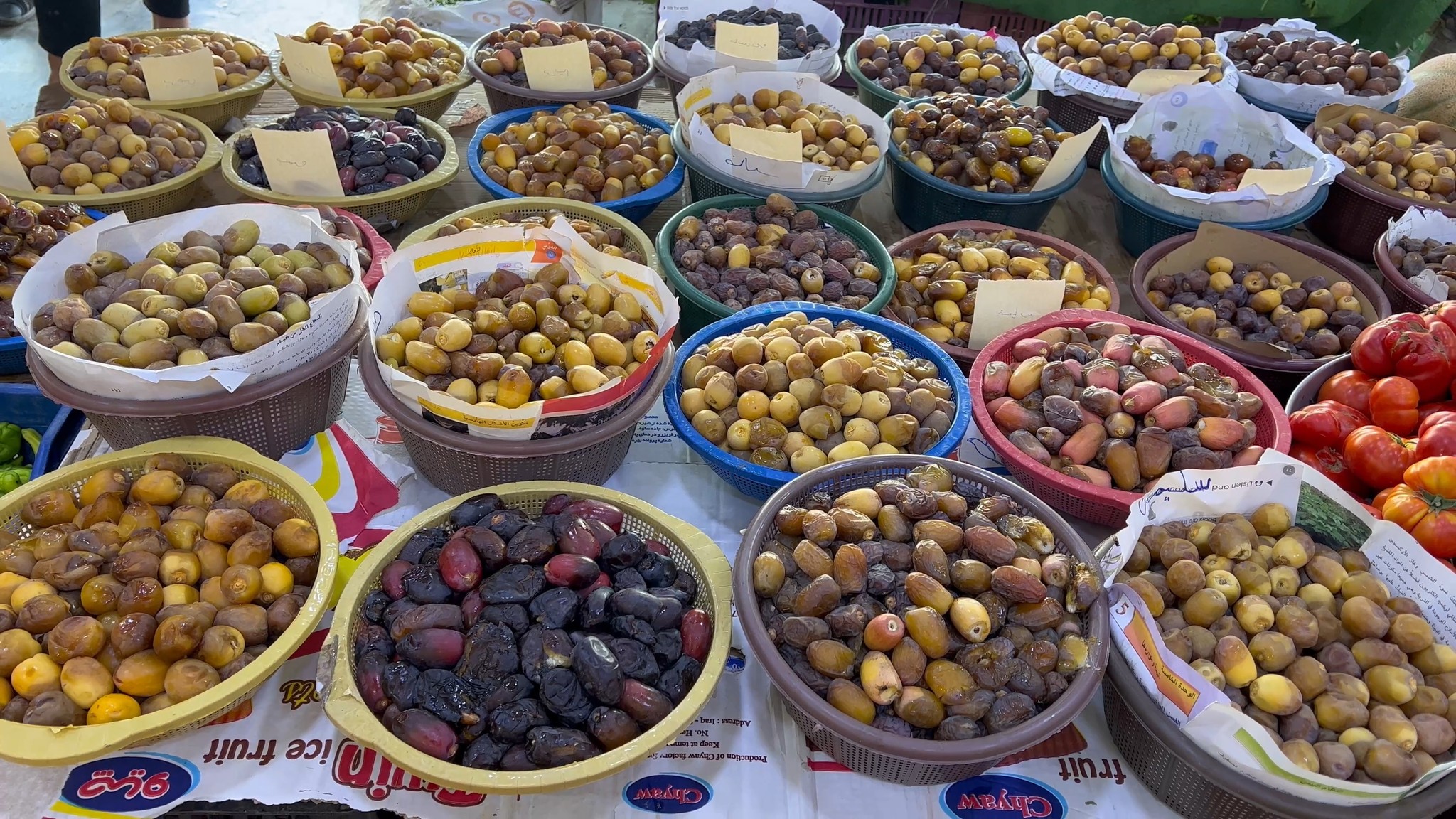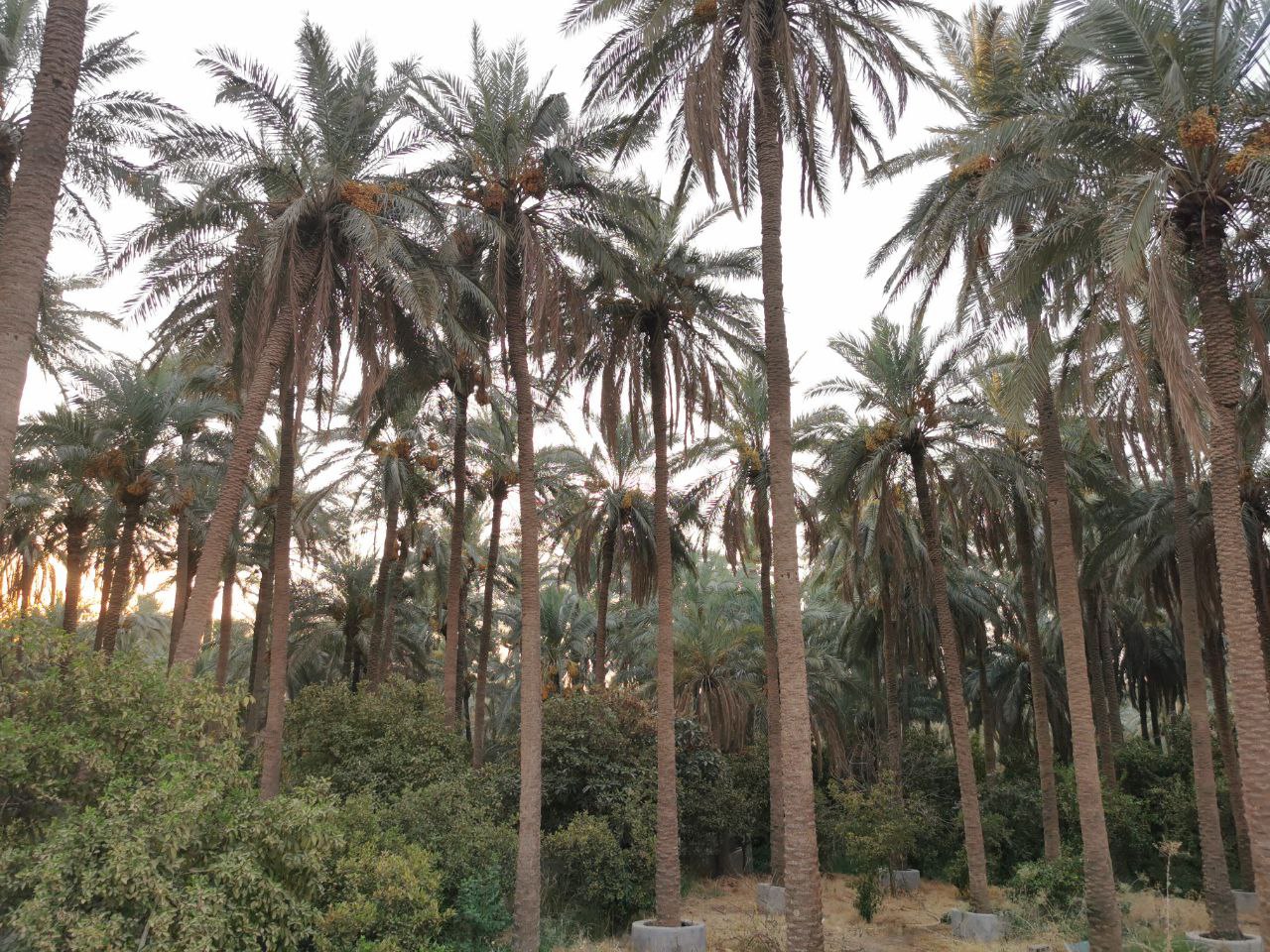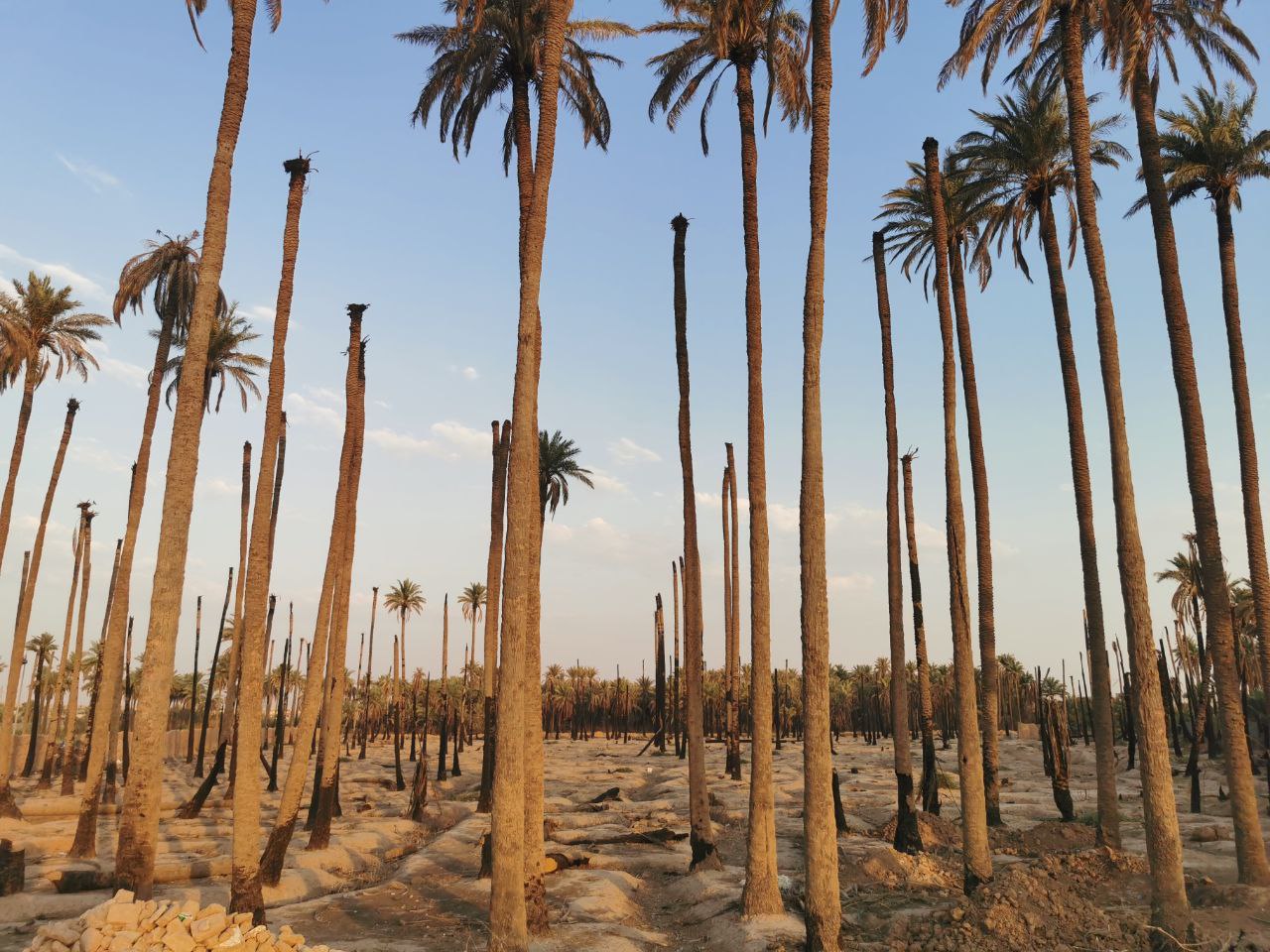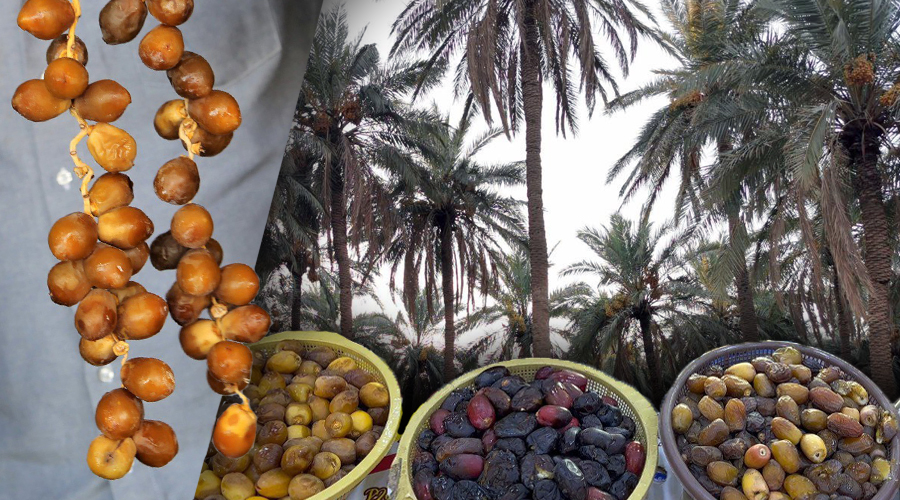While the price of one ton of dates reaches $300, the cost of annual production for the same quantity is much higher, which has frustrated farmers in Khanaqin, east of Baghdad.
Khanaqin district, which is famous for its palm groves, is witnessing a noticeable decline. According to statistics from the Khanaqin Agriculture Department, date production sharply dropped down over the past 20 years from 8,000 tons annually to half.
Until several years ago, Omid Javed produced and marketed 30 tons of the finest dates annually, but his production declined over the past two years to only 16 tons.
Although some of the factors that led to this decline are natural factors, such poor rainfall and dust storms that infect palm trees with some pests, still there are other factors related to the lack of government support for farmers.
"In the past three years, 40 dunams (4 hectares) of palm groves were gone. Some of them were burned and others were swept away. We were also unable to secure water for some of them," Javed sadly says.
In the past three years, 40 dunams (4 hectares) of palm groves were gone
Farmers earn 400 Iraqi dinars IQD (USD0.3) per kilogram of dates, which is a “small” amount compared to the cost of production.
“Our biggest concern now is to avoid a major loss and be able to at least cover the cost of production,” Javed is concerned.
He is one of dozens of palm grove owners in Khanaqin district of Diyala Governorate. The town is one of the disputed territories between the Kurdistan Regional Government (KRG) and the federal government under the Iraqi constitution.
The political and security instability might be one of the factors that the federal, regional and even local governments did not provide support to Khanaqin farmers who miss the state support they were provided up to 2003, when Saddam Hussein regime was toppled.

“The period between 2019 and 2022 was the worst period that the palm groves went through,” Javed said.
During that period, rainfall decreased significantly, while dust storms and groundwater scarcity directly affected agriculture, horticulture, and even livestock grazing.
Dates are an important food product in Iraq and are used to make molasses as well as in some foods.
Muhammad Al-Khazali, spokesman for the Iraqi Ministry of Agriculture, last February said the number of palm trees in Iraq currently reaches 20 million palm trees, after the efforts made by the ministry to plant palm trees as an alternative to trees that have died and burnt.
“Due to wars and siege, palm trees were neglected and their number decreased from 32 million to 12 million palm trees, but the ministry’s plans succeeded in planting palm trees in some governorates such as Kirkuk, Salah al-Din, Nineveh and Anbar, and as a result their number reached 20 million palm trees,” said Agriculture Ministry spokesman.
Overall, the year 2023 was relatively better for date production in Javid’s grove, as its production increased from 16 tons to 23 tons, but this does not meet the ambition of Javid and other farmers.
If we fail to earn $300 from one ton, this is a disaster because the cost of producing one ton of dates exceeds this amount
“If we fail to earn $300 from one ton, this is a disaster because the cost of producing one ton of dates exceeds this amount.”
November is the month of date marketing for farmers, because the price of dates rises in this month. Most farmers sell their dates after they ripen in October and cannot wait until November.
“We are waiting for the price of one kilogram to reach 600 dinars. If that happens, it will be a good thing for us,” according to Javed.
Last year, more than 650,000 tons of dates were exported to Asian markets, according to the Ministry of Agriculture.
There are 2,414 palm groves in Khanaqin District, according to statistics from the Department of Agriculture, 160 of which are leased by the state to farmers per permanent contracts, and the rest are owned by the farmers.

“The government does not provide us with fertilizers and pesticides as required. Before the fall of the Baath regime – in 2003 - the government itself supervised the process of spraying groves with pesticides via helicopters to protect the trees from being infected with some pests, but this process has been stopped since then,” Javid adds.
“In that period there were two or three types of pests, but now there are 30 different pests.”
The political turmoil and instability Iraq witnessed has affected agriculture sector as well.
Muhammad Ezzat owns palm groves with an area of 101 dunams, home for 5,000 palm trees, which produce 200 tons of dates annually. He complains of suffering losses due to the many obstacles and the absence of government support.
One of the obstacles facing Ezzat is that the government during the Baath Party rule seized part of his groves for disputes over ownership. When he covered up his groves, a large portion of the palm trees there had disappeared.
He owns a palm orchard in the center of the district, one of which is 16 dunums (1.6 hecatre) and the other is 8 dunams (0.8 hectares), producing 35 tons of dates annually. Ezzat’s groves contain the most famous varieties of dates, including the Khadrawi variety, but his production has declined over the past two years to 30 tons.
Most farmers say that they will be able to secure the cost of production if they sell one kilogram for 700 IQD, and they are now waiting for its price to reach 600 IQD within the next two weeks.
Another challenge for Ezzat are the pests that afflict palm trees, mainly Sooty Mold (Dobas), which has spread widely for years and has harmed his palm trees and the amount of production.
“The dobas is an insect that sucks the plant’s natural juices and secretes a honeydew substance that gradually spreads over it. In the worst cases, it submerges the entire tree, exposing it to death.”
“There is another pest called the dust spider, which causes great damage to palm trees.”

One of the palm groves after being burned and driedو Diyala. KirkukNow
While the farmers feel neglected and agriculture is not anymore a priority for the government, there are efforts to establish new palm groves to produce various types of dates in Khanaqin.
Kamran Abdullah, director of Khanaqin Agriculture, told KirkukNow, “Some farmers brought new types of palm trees from Saudi Arabia, which they believe are compatible with the climate of our region. This has led to an increase in palm groves over the past two years.”
Until two decades ago, there were 16 varieties of dates, but now their number has reached 24, according to Abdullah.
Another obstacle facing palm groves is deforestation as they are bulldozed and then converted into residential plots of land. During the past 20 years, about 60 groves with a total area of 180 dunums were flattened.
Using helicopters on palm trees had a direct effect in eliminating pests, but at the present time we are forced to administer pesticides to palm trees by making holes in them in order to eliminate pests.”
The Iraqi government said in response to a request from the Khanaqin Agriculture Department regarding the provision of helicopters, “We no longer have those helicopters that we used to use in the field of agriculture and horticulture.”
"Climate changes, the absence of government support, and the groves being bulldozed for the purpose of converting them into residential units, are among the main reasons behind the decline in date production," Kamran explained.
However, according to some farmers and officials in the Department of Agriculture, date production improved relatively during 2003 compared to the previous three years, and they attributed the improvement to an increase in rainfall.
“Palm groves have merged with my soul. I will continue working even though there are no longer profits and sometimes I suffer losses,” Muhammad Ezzat says.





